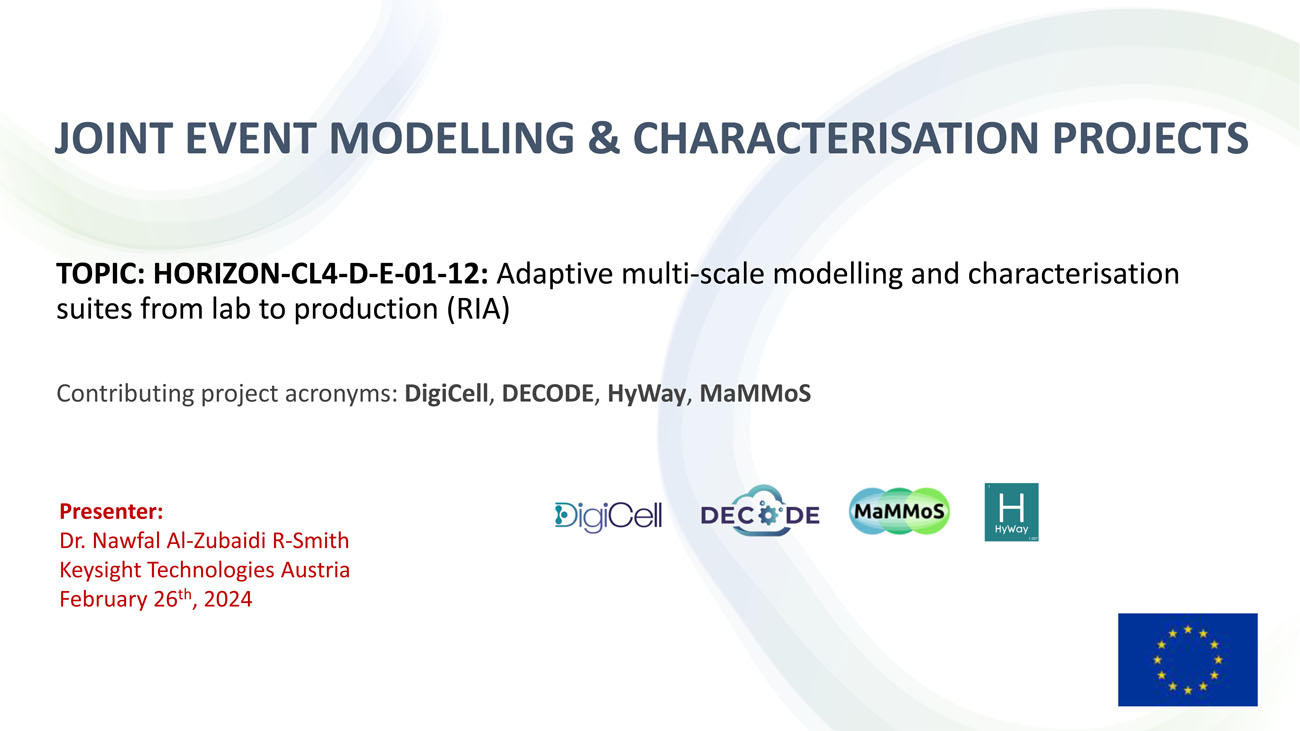Description
Computational design of magnetic motors, generators, and sensors is common practice at the device level: Finite element software is used to optimise the geometry of magnetic motors. Sensor models are used in the software tools for electronic circuit layout. The functional properties at the device level depend on the magnetic properties of the materials that in turn arise from the interplay between the quantum physics electronic properties at the atomistic length scale and the material’s nanoscale and microscale structure. In order to address these vastly different length scales independently, there exist software tools that are mainly developed in academia. These disconnected tools are based on (i) density functional theory simulations to compute intrinsic magnetic properties, (ii) Heisenberg (also known as spin dynamics) models to study collective and stochastic behaviour of thousands to millions of atoms, and (iii) micromagnetic simulations using finite difference or finite element methods to compute the impact of shape and internal structure on the hysteresis properties of magnetic materials. MaMMoS will be built on this existing know-how and prepare a software suite for computational materials design for widespread use in European industry and research. MaMMoS will build data-driven models for magnetic materials at lengths ranging from the atomistic scale to device level through the fusion of characterisation and modelling data. MaMMoS aims to link the existing software tools across the different length scales, to establish standards for data exchange in applied magnetism, and tailor the software suite according to European industry needs.
Events & News
From January 28 to 29, 2025, a highly productive project meeting for Project Magnetic Multiscale Modelling Suide (MaMMos) took place at the Max Planck Computing and Data Facility in Garching, Munich. The meeting brought together the international project teams to discuss the latest advancements and future directions of the project.
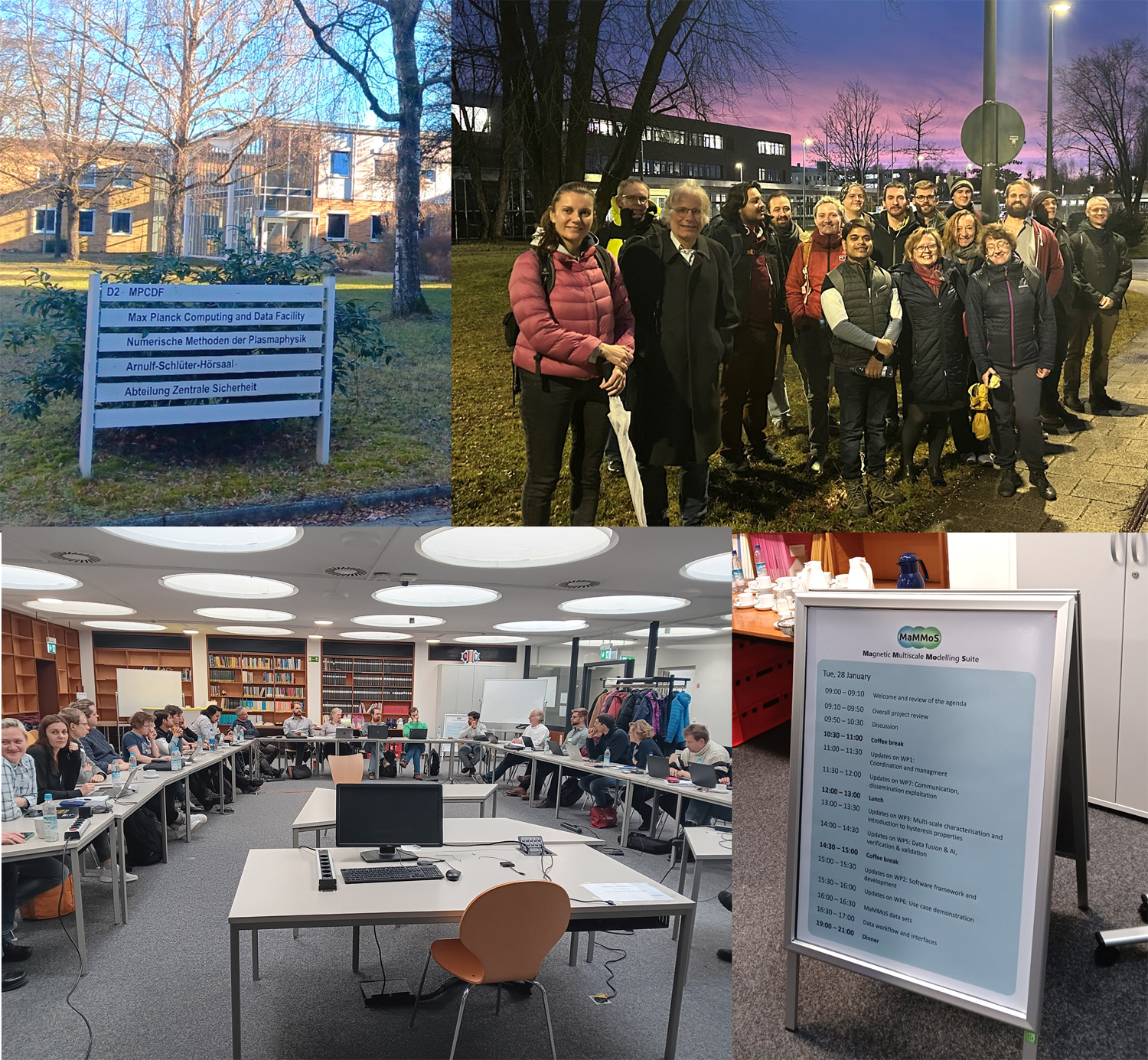
Keynote talk at the “The 11th International Conference on Multiscale Materials Modelling” in Prague, September 22-27, 2024.
Thomas Schrefl, "Multiscale design of permanent magnets"
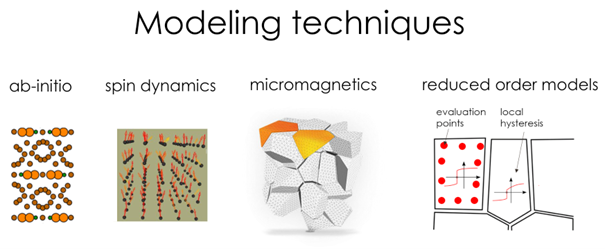
Focus group workshop on using AI for the development of Green Materials
How can AI be used to develop novel materials which have smaller environmental impact or support the Green Transformation? On Oct. 9, a focus group of high-level experts from research and industry met at MCL to tackle this topic in the framework of the study Study-AI4GreenMat (https://projekte.ffg.at/projekt/5121362). Thomas Schrefl represented the MaMMoS project. After a presentation of preliminary results from an extensive research and the online survey (https://ec.europa.eu/eusurvey/runner/AI4GreenMat) by Jürgen Spitaler and Hans-Peter Gänser from MCL, the participants worked hard on elaborating crucial aspects such as most promising materials, AI methods and use cases, sector-wise potential and requirements in terms of infrastructure and legal boundary conditions. The outcome of the workshop will feed into the study, which is done for the Austrian Ministry of Climate Action, Environment, Energy, Mobility, Innovation and Technology (BMK: https://www.bmk.gv.at/en.html).
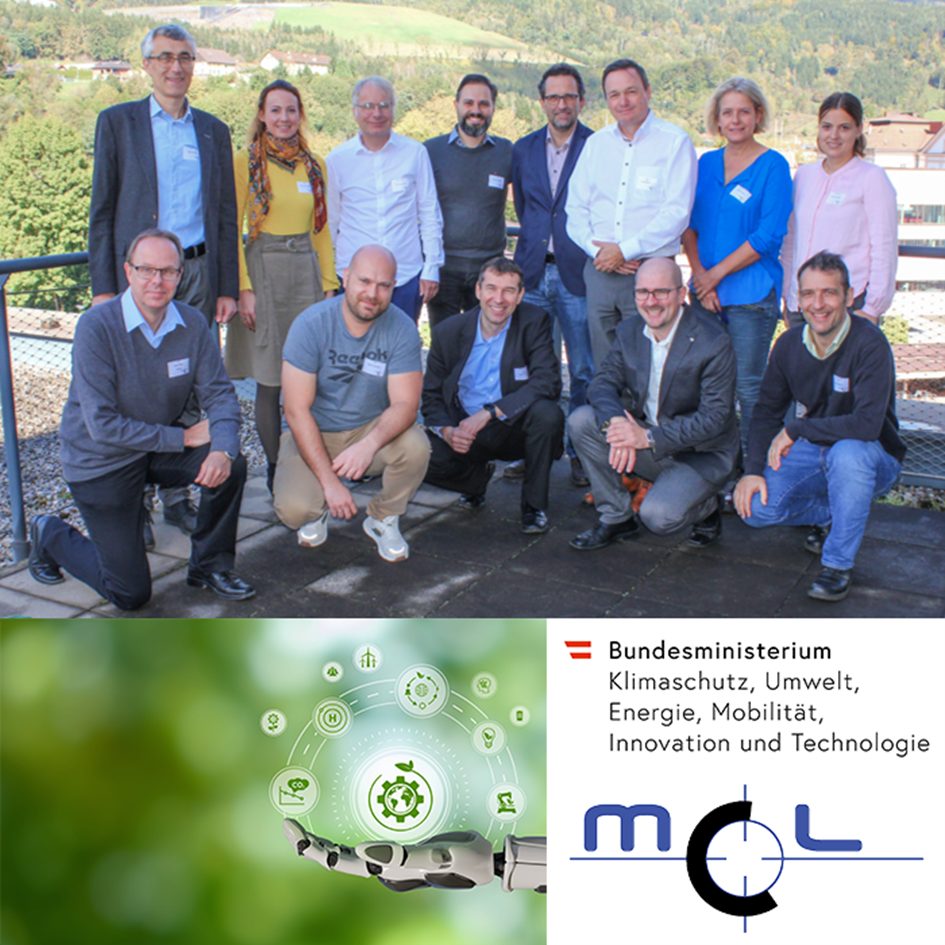
AI4AM2024 – Artificial Intellegence for Advanced Materials
From 02nd – 04th July AI4AM2024 takes place in Barcelona, Spain. Timoteo Colnaghi (Max Planck Computing and Data Facility) takes part in the conference with his contribution “The role of AI and ML in the development of a Multiscale modelling suite for sustainable magnetic materials”
ICM2024 – International Conference on Magnetism
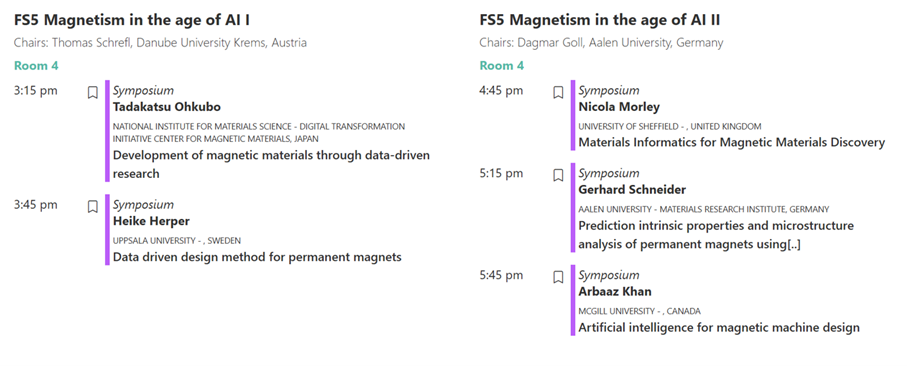
From 30th June to 5th July ICM 2024 took place in Bologna, Italy. A Focus Session under the topic of Magnetism in the age of AI was chaired by Thomas Schrefl (UWK) and with Heike Herper (Uppsala University) as invited speaker.
Materials Week 2024 – Strategic R&I for the Value Chains of the Future
From 17. to 21. June 2024 MaterialsWeek 2024 took place in Cypres.MaterialsWeek 2024 aims to bring togetheer – for the first time – the numerous small and large Research and Innovation (R&I) communities that are driving advances in materials innovation manifested across diverse calue chains and industrial markets.
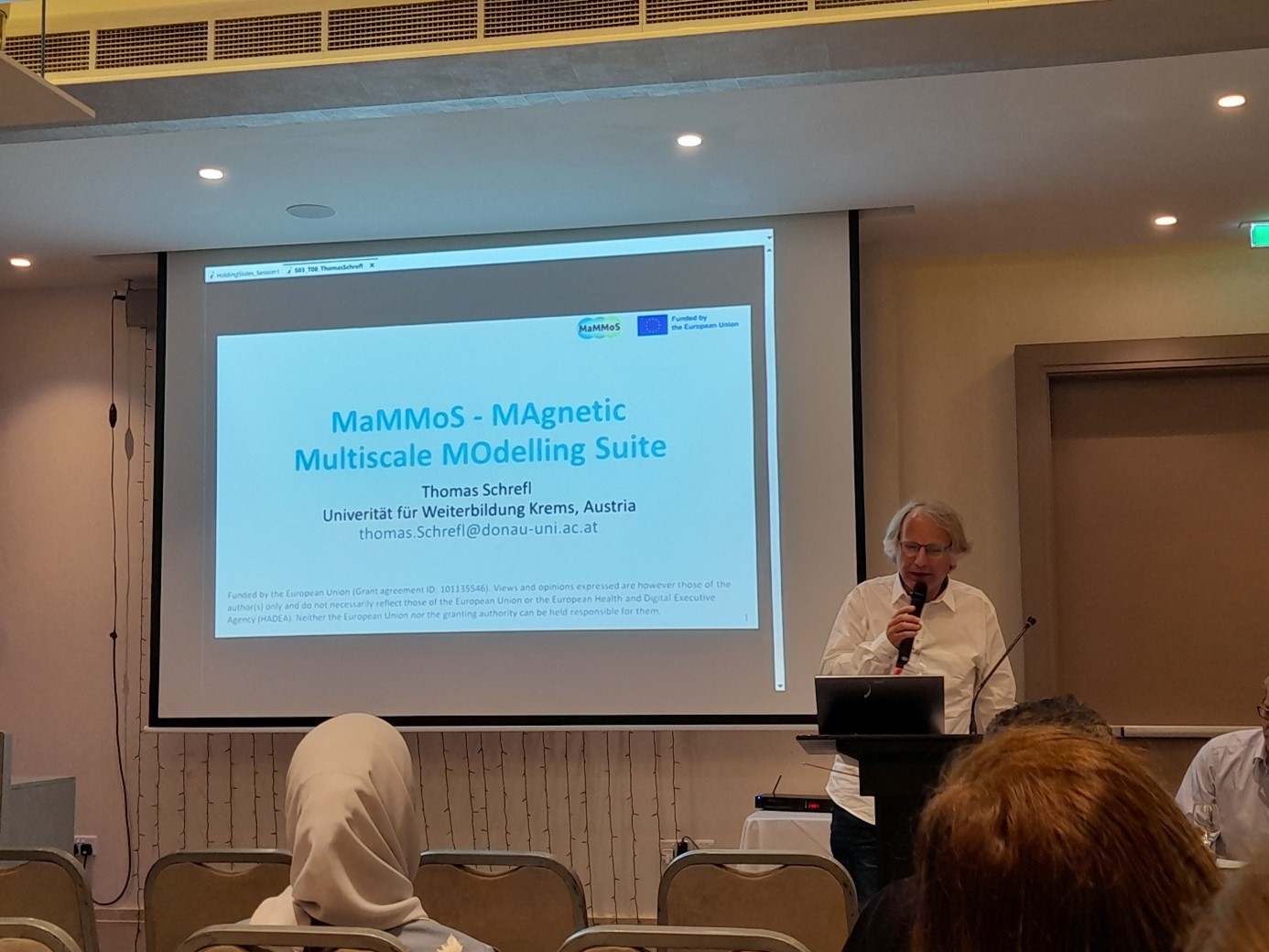
Magnetic Multiscale Modelling Suite, Thomas Schrefl
Lange Nacht der Forschung
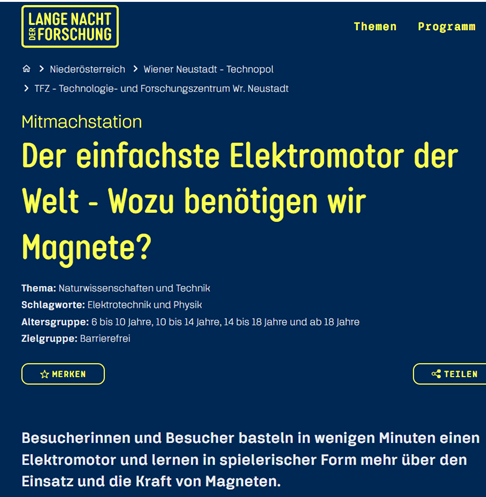
On 24. May 2024, the Lange Nacht der Forschung took place at various venues across Austria. Our research booth in Krems showcased how micromagnetic simulations and artificial intelligence can accelerate the discovery of eco-friendly, sustainable, and cost-effective permanent magnets. Visitors actively participated in the research by drawing magnets with various phase distributions and crystal structures using felt-tip pens. Our trained AI then analyzed their designs, predicting their potential performance. Through discussions, we emphasized the importance of magnet research for the green energy transition in the fight against climate change.
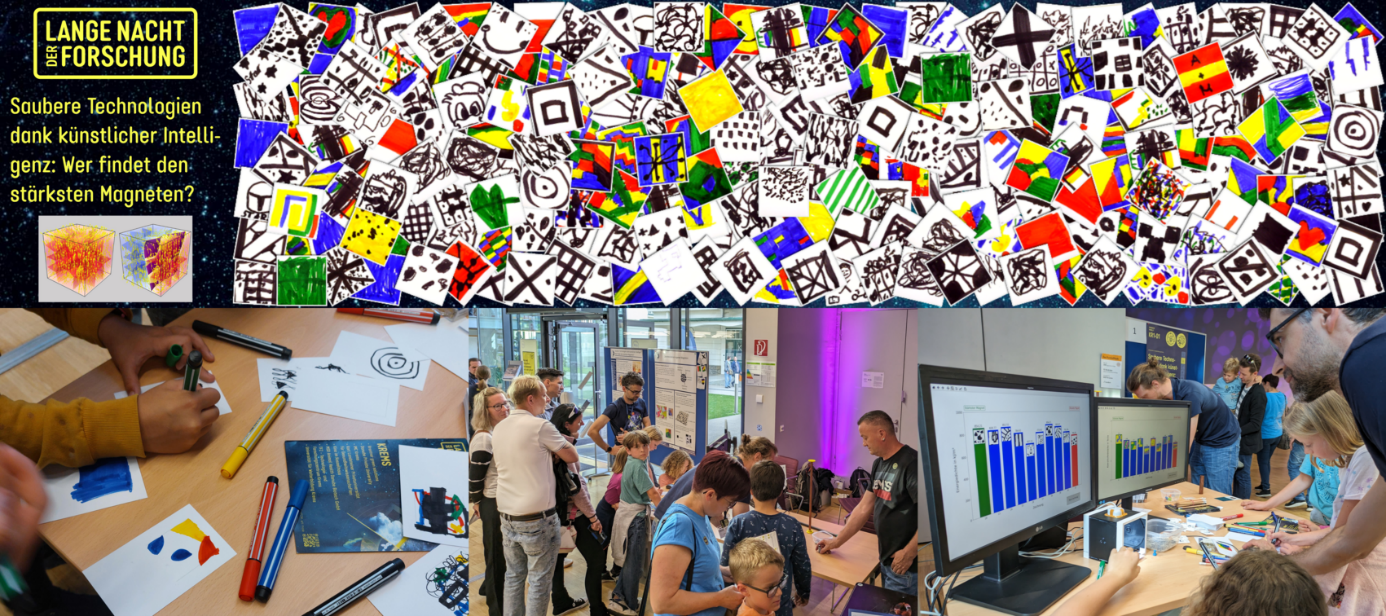
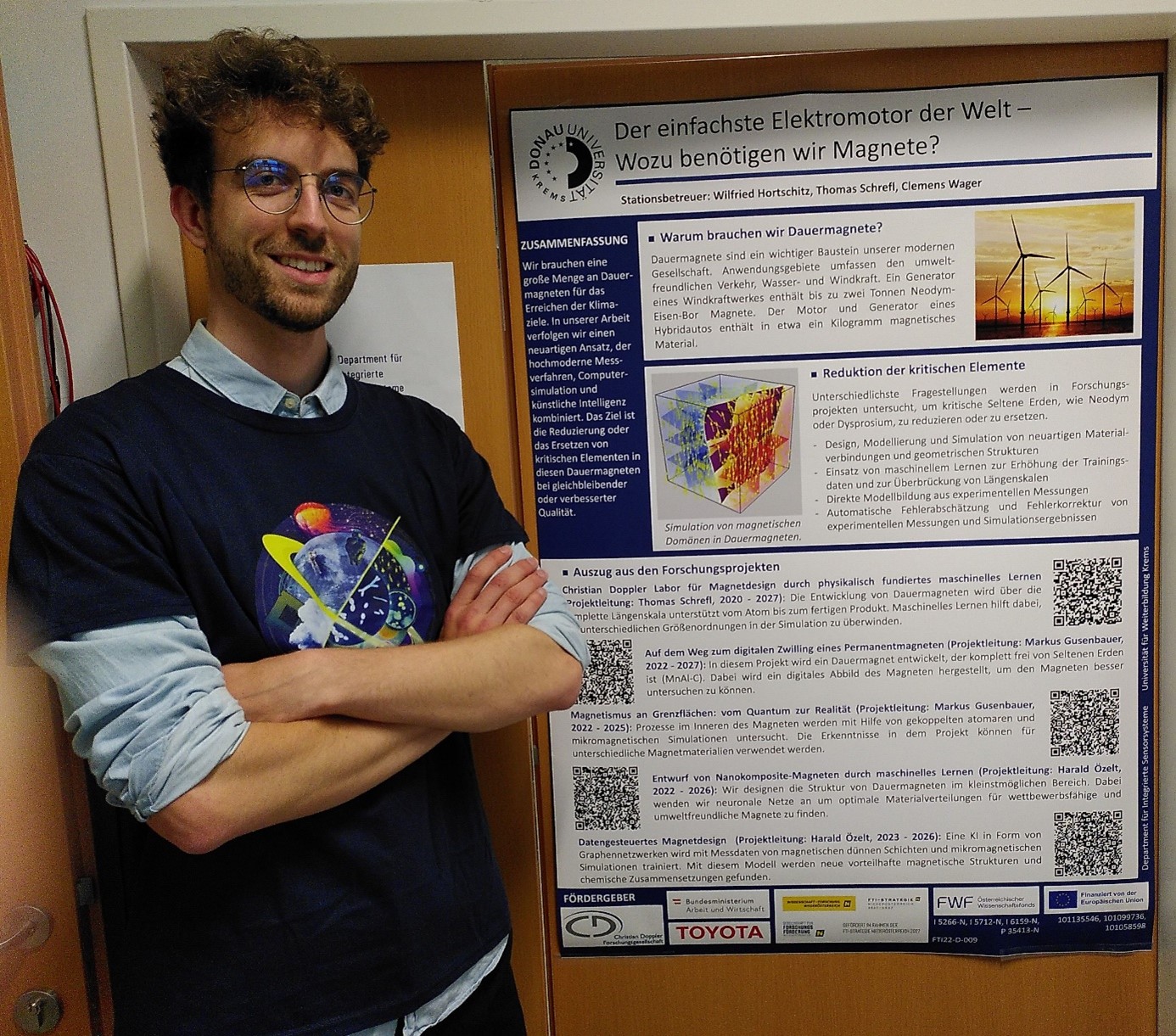
2024 Annual General Meeting (AGM) of EMMC
Am 7. Mai fand das 2024 Annual General Meeting (AGM) von EMMC in Cambridge (UK) und online statt.
Revision of CWA 17815:2021: “Materials Characterisation - Terminology, Metadata and Classification”
The workshop orginazed from EMMC related initiative NanoMeCommons took place at 24th April 2024 online.
MaMMos and Open Model
On 3rd April 2024 with Alex Simperler and Otello Roscioni. Intro to Open Model Functionality and how it can aid with the developments in MaMMos.
Joint Workshop Advanced Materials - Characterisation and Modelling Projects
26th.February 2024
KICK-OFF MEETING
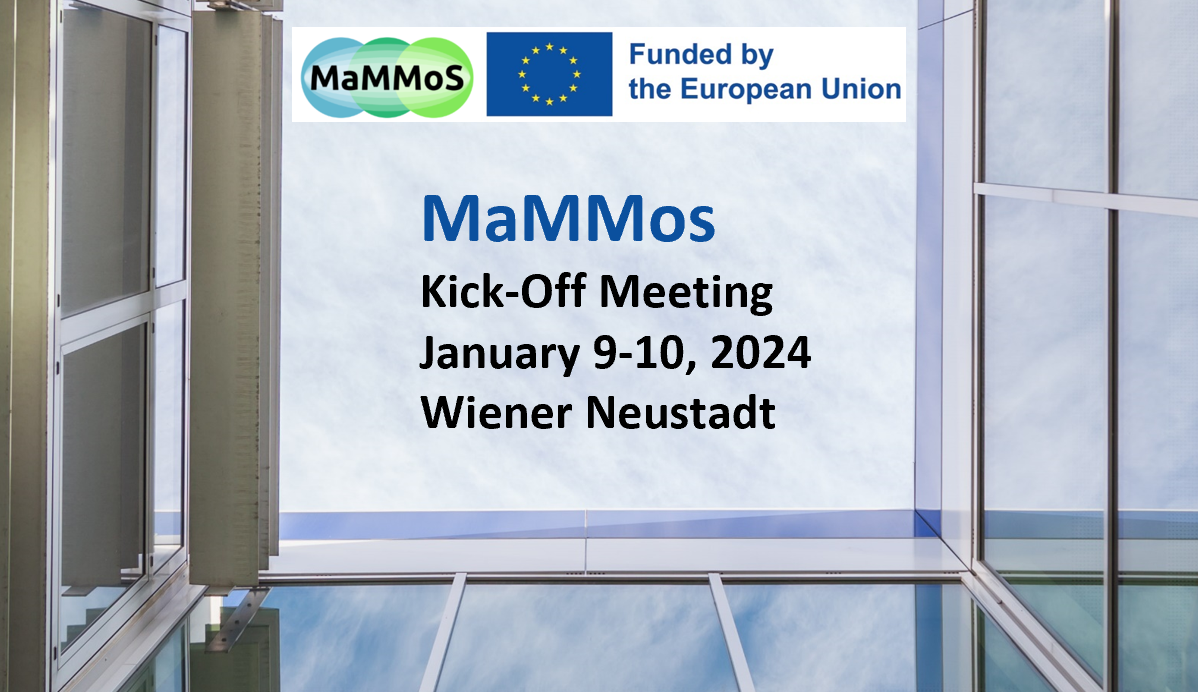
From 9th to 10th Januray 2024 Kickoff Meeting MaMMos took place in Wiener Neustadt, Austria.
Details
| Duration | 01/01/2024 - 31/12/2027 |
|---|---|
| Funding | EU |
| Program |


|
| Department | |
| Principle investigator for the project (University for Continuing Education Krems) | Univ.-Doz.Dipl.-Ing.Dr. Thomas Schrefl |
| Project members |
Projectpartners
Leibniz-Institut für Festkörper-und Werkstoffforschung Dresden e.V.
Centre National de La Recherche Scientifique CNRS
Max-Planck-Gesellschaft zur Förderung der Wissenschaften e.V.
- Max Planck Institute for the Structure and Dynamics of Matter
- Max Planck Computing and Data Facility
MaMMos project homepage
Team
Lectures
Multiscale design of permanent magnets
The 11th International Conference on Multiscale Materials Modeling, 25/09/2024
Magnetic Multiscale Modelling Suite
Materials week 2024, 18/06/2024
